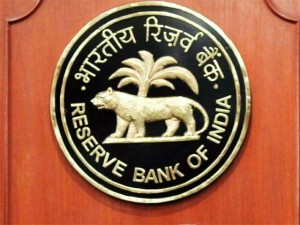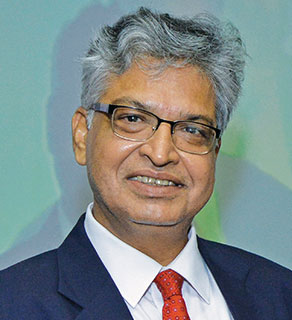

 The Union Cabinet chaired by the Prime Minister, Narendra Modi, on 29th October gave its approval to introduce the School of Planning and Architecture Bill, 2014 in the Parliament to bring all three Schools of Planning and Architecture(SPAs) within the ambit of the School of Planning and Architecture Bill, 2014. The Bill would adhere to Government policies on reservations fromtime to time. The proposed Act will empower these Schools toaward degrees through an Act of Parliament.
The Union Cabinet chaired by the Prime Minister, Narendra Modi, on 29th October gave its approval to introduce the School of Planning and Architecture Bill, 2014 in the Parliament to bring all three Schools of Planning and Architecture(SPAs) within the ambit of the School of Planning and Architecture Bill, 2014. The Bill would adhere to Government policies on reservations fromtime to time. The proposed Act will empower these Schools toaward degrees through an Act of Parliament.
EDITORIAL
INDUSTRY SPEAK
‘Opportunities in Higher Education are Enormous’
LEADER SPEAK
Higher Investment Crucial to Improving Quality
SMART CLASS
Moving towards a digital tomorrow with Smart Classes
MBD announces launch of NYTRA – first Augmented Reality App in Education
SKILL DEVELOPMENT
Skill Development Indispensable for India
DIGITAL LABS
Digital Labs: Bridging Language Divide
COMPANY PROFILES
Bringing World-Class Education to India
Helping Schools with Innovative Research-Based Programmes
Embedding Technology to Embed Skills
International Grooming with an Indian Edge
Creating Innovative Learning Environment
An Integrated Solution Specialist
A Teacher-Driven Platform for the World
Protecting Schools Through Technology
Developing Personalities Through Drama
AUDIO VISUAL
Breaking Barriers in Learning and Education
Virtual Classrooms — Future of Education
ERP
INNOVATION
Now, an Innovation to Curb Food Wastage
DEBATE
Bridging the Student-Teacher Gap
ADVERTORIAL
Breaking Boundaries of Traditional Classroom
PRODUCT MATRIX

Please discuss the salient features of your research on Food Wastage reduction.
Over 30 percent of fruits and vegetables are wasted annually in our country, which is worth an amount of 12 billion USD annually. As a result, there is a 60 percent deficit in the current cold chain infrastructure. Of the available infrastructure with us, 75 per cent of the available storage facilities just cater to potatoes. Farmers lose on their deserved remuneration as well because they are forced to sell their produce to the middlemen because they do not have access to infrastructure for storage. In India, over 30 per cent of food is wasted due to lack of proper storage facilities. Despite being among the top producers of fruits and vegetables, the per capita availability of horticulture commodities in India is woefully low. Further, the unavailability of conventional power sources in the distant farms of India’s hinterland makes on-farm storage impossible for farmers to preserve their harvest. It was this insight that led us to develop Micro Cold Storage, which is an affordable onfarm cold storage device.
Recent statistics reveal that India wastes food worth `44,000 crore every year. How do you see this innovation revolutionising the scenario towards curbing food wastage?
The product is an on-farm solar cold storage. It fits the value chain of crops right at the farm level where maximum wastages are there. At the same time, it ensures deserved remuneration to the farmers.
The product can work in areas with no electricity with reliability. It is lower in comparison to any product that may use solar panels to run a conventional cold storage. The product suits the requirement of farmers, cooperative, farmer producer companies, village level entrepreneurs and supply chain players curbing wastages at each node of the food value chain hence making significant impact in terms of food security and livelihood.
What is the scope of promotion and USP of your innovation when it comes to generating revenue in Indian market? What are your plans for expanding this innovation to foreign countries?
As a developing country, India has immense potential for this innovation. We are attracting a lot of demand because of the merit of the product and its ability to solve the problem on ground very effectively. Our USP is the high operational efficiency and minimal running cost because of several innovations for the product makes us competitive.
Similar to the Indian context, the product fits very well in any other developing country with a problem of electricity. In developed countries where though power availability is not a problem, the product can fit in the food value chain with usage of clean technology thereby impacting the climate at large.
What is the potential of marketing and revenue generation that this innovation has from the Indian market?
Given the need and the demand, the innovation has a huge revenue generating potential. We are already creating strategic channels to market this product in a geography and customer-centric mode.
What are the challenges that you faced while researching on this innovation?
The primary challenge was identifying the type and configuration of the system a typical customer would want. We conducted extensive market research in various areas including UP, Haryana, Maharashtra, Orissa, Karnataka and a few other areas to understand what a prospective customer would want. Then, taking the idea from a concept stage to a stage where the product can work hassle free for a customer took a lot of design iterations.
What is your opinion about the potential of this kind of talent show-case seminars which brings forth newer innovation? What scope do they reveal for students?
The shows provide an amazing platform for showcasing the innovations which are solving such critical problems. At the same time, it encourages the youth/ students to take up challenges and implement their learning for better future. While the start-up culture in India mostly revolves around web/Internet-based innovations, it is critical to showcase innovations that are key to development of the country.

Has AIU achieved its mission since it was set up 90 years ago?
It is a voluntary association of all the universities in the country. Any institution that has the power to grant degrees is eligible to become an AIU member. Out of nearly 700 universities, around 500 are members. As the collective voice of higher education, we enter into a dialogue amongst ourselves and form a view and convey it to policy planners. Similarly, we interact with the HRD ministry, Planning Commission, UGC, AICITE and communicate it to our member institutions. Besides this, we support research and sport competitions. We publish university news and a Universities Handbook.
With the emergence of private universities, have the challenges for AIU increased manifold?
AIU does not see universities in terms of ownership. Our larger concern is that irrespective of ownership, universities emerge as centres of excellence. So we do a lot of communication not to cut corners and not compromise on quality. Evidences are emerging that people are not merely looking for a degree. What they are looking for is a quality programme in an institution where degrees are recognised and provides them social and economic opportunities.
Our governance structure is designed in a manner that ensures representation of all. In the seventies, a decision was arrived in favour of zonal representation with three vice chancellors from each of the five zones besides five to six others. At that time, variation was not there. Now is the time to ensure that there is representation of all kinds of universities in our governing structure. We are seized with this question to see how to amend our by-laws and Memorandum of Understanding to see that different kinds of universities are represented well in the decision-making process. We have already set up a committee and it is being studied. It will take three to six months.
What is the holistic perspective you get on higher education in India?
In terms of expansion of institution enrolment, India has done remarkably well. Even in terms of inclusion, which is a major concern in India, we have done fairly well. I personally do not subscribe to the view that quality has declined. Objective parameters such as employability, number of papers and Indians going abroad have all improved. I agree that with respect to India’s quality in the global context, there are huge gaps in terms of teaching, innovation, curriculum and pedagogy. We need to improve in these areas. But I also say India is the most cost-efficient higher education system (spending per student basis).
Our output, per dollar of investment we make, is enormous. If we want quality, we should be ready to invest more in higher education.
How much does India spend on each student in higher education? Should it be increased? If yes how much?
In the best of institutions it would be Rs 5 lakh per year per student. It should be increased at least 15 times. Even on the basis of purchasing power parity, if you want your IITs to become MIT, we need to raise investments to that level. Our investment is very low. We have to ensure quality infrastructure, teachers etc.
Can Indian universities become education hubs?
To implement academic reforms, there are certain pre-conditions that need to be assured. From 1991, most universities face a ban on faculty recruitment. In case of central universities, the ban was removed in 1995. But these account for only 5 per cent enrollment in education. The remaining 95 per cent is in the state sector. In state universities, there is either a direct or tacit ban on faculty rerecruitment. Some of them have removed the ban but are resorting to appointing teachers on temporary basis. How will the best of students come to academics?
So what is the way out?
To attract talent, universities have to offer what the Sixth Pay Commission has recommended.
Is going digital the way forward to realise education for all?
Technology can supplement teachers but nowhere in the world has it been able to replace teachers. Global centers of higher education such as Harvard, Chicago and Oxford which are active in online learning are targetting a teacherstudent ratio of eight and ten. In India, it is one teacher to 25 to 30 students. In some disciplines, it is worse. Using ICT tools in our education is necessary but it cannot be a substitute.
“To attract talent, universities have to offer what the Sixth Pay Commission has recommended”
As a finance expert, what is your take on resource mobilisation for education and educational institutions at various levels?
If you look at the public universities in India, fees contribute merely 10 per cent and rest is grant from the government. They are not mobilising resources from any other source. Lack of incentivisation is the reason. Secondly, the institution may get lesser funds after deducting the resource they have mobilised. Mobilised funds are subjected to procedures. Fourthly, there is a cost to raising funds. In India, there are no such concepts. In case of foreign universities, research and development is funded by corporates while in India, it is government grant that feeds R&D.
About 15 per cent seats in all the higher educational institutions can be allocated to foreign students and persons of Indian origin on supernumerary basis without affecting Indian students’ intake. Universities should attract more foreign students. This requires marketing, campaigns, sales offices and appointing sales agents. But the Indian system does not allow these things. We do not have good infrastructure to attract foreign students. We want them to stay with Indian students and eat the same Indian food which is not palatable to them.
Why can’t we allow the hospitality industry to develop hostels on BOT basis on the university land? Allow the private investor to recover the cost for 20 years and then the assets belong to the university. Let foreign students pay higher fee. With limited grants from the government, universities develop in a piecemeal manner in two decades. Why can’t we draw a plan on infrastructure needs and invite bids to build, develop and operate and ask them how much would they charge per square meter? We will have the entire infrastructure within five years.
What is the significance of MoUs signed by AIU with half-a-dozen countries?
Presently, all the admission is based on the number of years spent in the education system. Most of the MoUs are about recognition of qualification that will enable students to get admission to foreign universities. Another issue is internationalisation of higher education globally and the mobility of students between nations. Equivalence and recognition of qualification is another issue there. Presently, we do not have any higher education qualification framework in India. We are bogged down to whether two, three or four years are important.
Has the AIU formulated its stand on the New Education Policy?
Let it be announced formally. AIU would want to play a very vital role as we are a major stakeholder. We have had many committees. How many more study groups do we need? All the problems and all the solutions are well known. We need to address them holistically and implement them.

This programme has been acknowledged for its merit, and now is taught in more than 32 countries and benefits a hundred thousand students. The programme was introduced in India by Harish Seksaria, promoter and Director of Govind Knowledge Ventures Private Limited in 2003 in the form of a franchise. It is currently available in 40 cities across India and will be launched in another 100 cities in the next three years. Govind Knowledge Ventures’ today has nearly fifty franchises of its own within India. It’s educationists and entrepreneurs conduct workshops to highlight the efficacy of Helen O’Grady’s personality and communications skill programmes in various schools and private studios across the country.
| Arpita Mittal, CEO | |
| Company Name:Helen O’Grady International
Year of Inception: 2002
Number of Employees: 20
Leadership Team
Harsh Seksaria, Nandkumar Seksaria and Tarun Seksaria Target Verticals: Education,
Automobiles, Hospitality & Real Estate Customer support: 044 23725453
|
Head Office
710, Palmspring, New Link Road, Malad West, Mumbai – 400064 Regional Office
Delhi, Indore, Kolkata, Indore, Amritsar, Ludhiana, Jodhpur, Udaipur, Ahmedabad, Surat, Lucknow, Raipur EMail: admin@helenogrady.co.in
Website: www.helenogrady.co.in
|
A specially designed curriculum for personality and communication development for students of all age groups, school teachers, parents and corporates. The programme is divided into three parts or terms. It seeks to empower the students by developing their communication skills, self-confidence, self-esteem, positive outlook and social skills. Students are encouraged to take part in public speaking, creative movement, dance, drama, structured improvisation, dialogue development and miniscripts. The programme also encourages them to contribute original ideas to existing plays. The teacher controls and modulates the students’ contributions, teaching them how to incorporate the suggestions. In the third and final term, the students are able to produce fully scripted productions of their own.
Pre-schools, Schools and other educational institutions
Achievements |
|
USP |
|